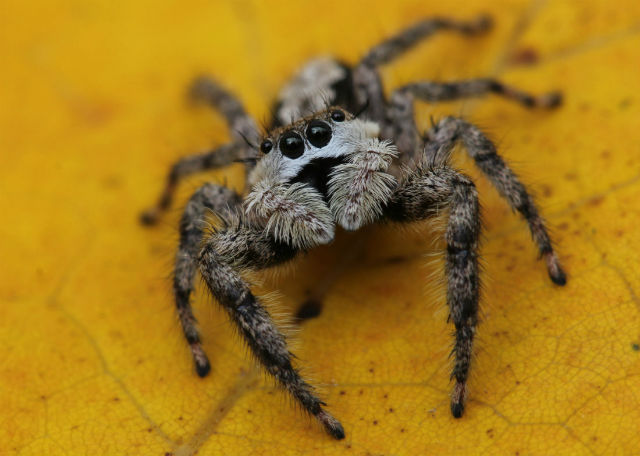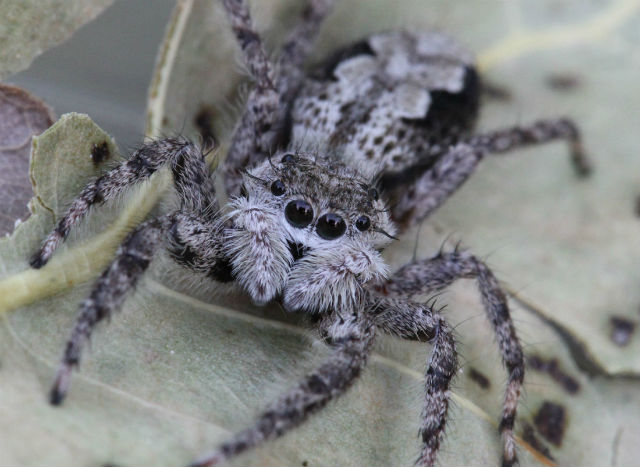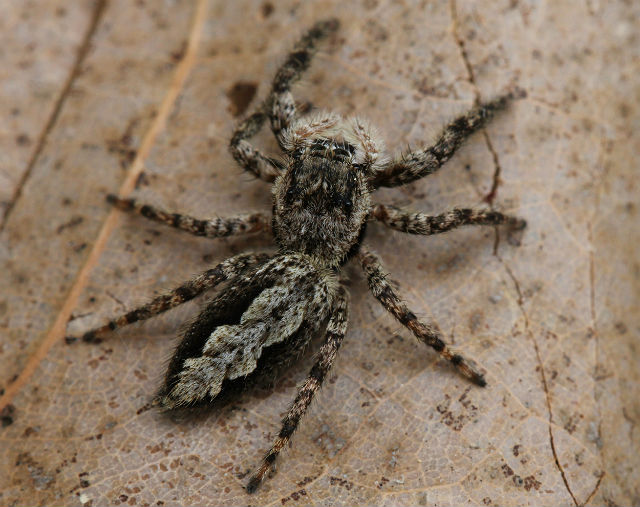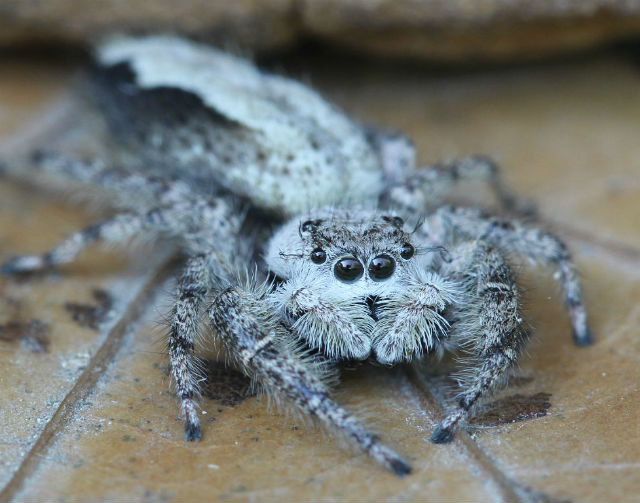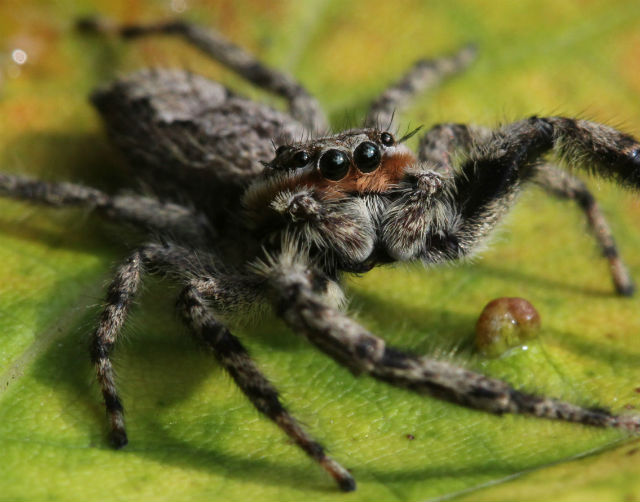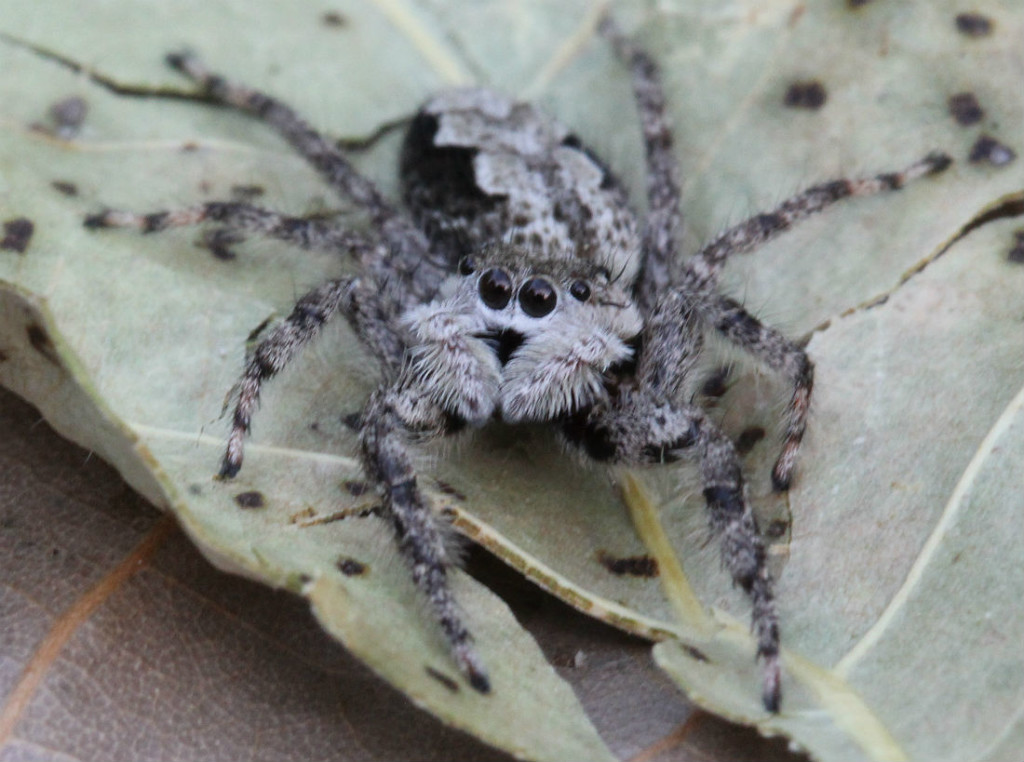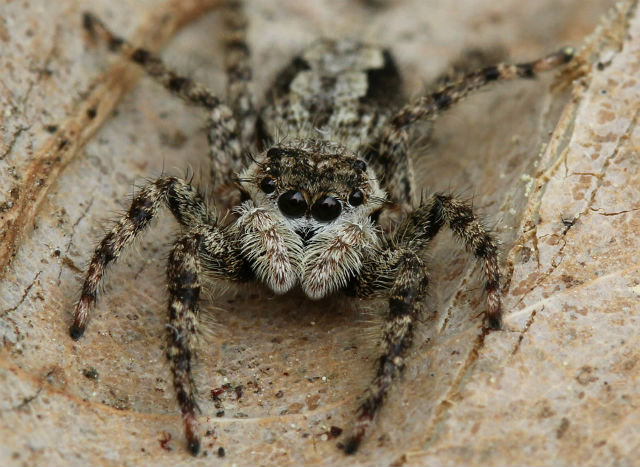Recently I found one of these creatures in my house. This cryptically-colored spider is common on all sorts of vertical surfaces like tree trunks, fence posts, and the outer walls of buildings. Many will overwinter under loose tree bark, which may explain how this one got indoors; it was looking for shelter from Winter.
Jumping Spiders hunt by sight and have very good vision. Like some other types of Jumping Spiders, this species appears to exhibit a curiosity towards humans who come into its sightline.
These furry arachnids have enormous front-facing eyes which make them seem almost mammal-like in appearance. The rest of their eight eyes wrap around their heads, giving them almost 360-degree vision.
Tan Jumping Spiders are most active in the Summer and I commonly see them on the outside of my house as well as on deck rails. Despite their “tan” common name, they are often varying shades of gray or brown.
Though small (less than half an inch), they are accomplished hunters. They approach prey slowly and when a short distance away, make a sudden leap onto an unfortunate insect. They are good jumpers and can leap many times their own body length.
Scientifically known as Platycryptus undatus, Tan Jumping Spiders usually have a wavy color pattern on the upper part of their abdomen. This undulating pattern is why they received the “undatus” part of their scientific name.
Their large eyes and curious dispositions help make jumping spiders one of the most appealing groups of spiders.

